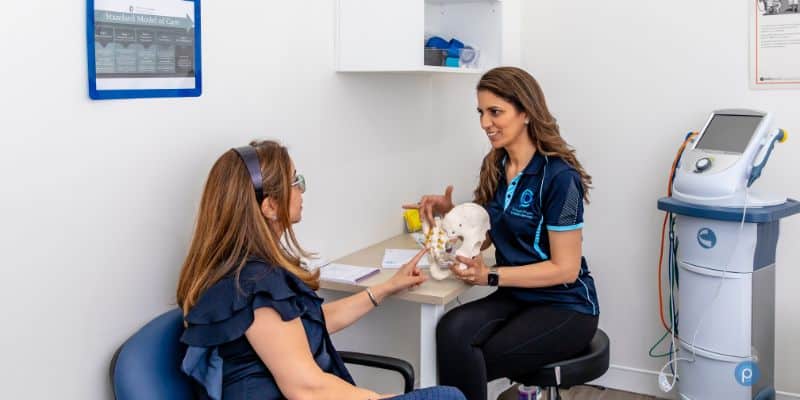Welcome to our insightful exploration of the pelvic floor muscles, a key component of your body’s ‘abdominal canister.’ Often nestled within the bony pelvis, these structures play a crucial role in overall health and well-being.
Pelvic Floor Anatomy: More Than Just Muscles
Your pelvic floor is a complex network that includes muscles, connective tissue (fascia), organs, nerves, and blood vessels. Each element has a specific role, making it clear that addressing pelvic floor dysfunction isn’t as straightforward as just strengthening the muscles.
The Crucial Role of Pelvic Floor Muscles
In this blog, we’re zeroing in on the pelvic floor muscles. These muscles form a supportive sling at the base of your abdominal canister, critical for maintaining pressure distribution in the abdomen. Their functionality is essential in supporting internal organs and preventing issues like incontinence and pelvic organ prolapse during or after pregnancy.
Synchronicity in Muscle Functioning
An important aspect of pelvic floor health is the coordination between the pelvic floor muscles and the diaphragm. This synchronization is key to effective 360-degree breathing and plays a vital role in conditions like Diastasis Recti healing.
Engaging your pelvic floor muscles correctly involves a balance of relaxation and contraction. It’s crucial to avoid overcompensation from other muscle groups, ensuring that the pelvic floor muscles initiate the movement, followed by a co-contraction of abdominal muscles.
Recognizing When to Seek Help
Understanding when to consult a Women’s Health Physiotherapist is crucial. Symptoms that warrant professional attention include:
- Incontinence during physical activities.
- Urgent or uncontrolled bathroom visits.
- Difficulty in engaging pelvic floor muscles.
- Bowel control challenges.
- Discomfort during intimate moments.
- Persistent pelvic pressure or heaviness.
Postpartum and Beyond: Pelvic Floor Strengthening for All
While pelvic floor strengthening is often associated with pregnant or postpartum women, it’s beneficial for people at various life stages experiencing any of the symptoms mentioned above.
Take Control of Your Health – Don’t let pelvic floor issues control your life.
Booking a session with a women’s health physiotherapist can be a game-changer, whether you’re due for a 6-week postpartum check or just looking to improve your pelvic health.


















